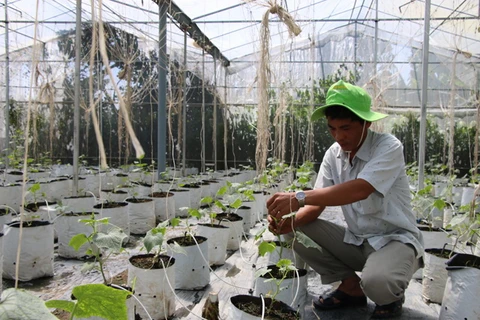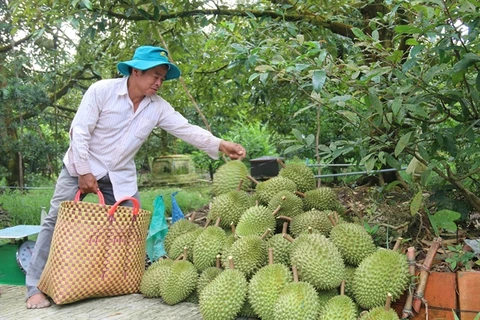 Trading households have contributed to socio-economic development in the Mekong Delta. (Source: VNA)
Trading households have contributed to socio-economic development in the Mekong Delta. (Source: VNA) HCM City (VNS/VNA) - The conversion of trading households into companies is progressing at a snail’s pace in the Mekong Delta.
The delta has nearly one million trading households, or almost a fifth of the country’s total number, which contribute a great deal to the region’s economic development.
Dr Le Dai Chi of the HCM City University of Economics said employment statistics released last year revealed that the number of workers in the household sector in 2017 was 1.634 million, or 59 percent of the number employed by companies in the delta.
Trading households have thus helped reduce poverty besides fostering traditional crafts in the region.
In the Mekong Delta, trading households have also set up companies, especially for making and distributing ceramics, farm produce, food and foodstuffs.
According to figures released by the Statistics Bureau, trading households accounts for 3 percent of total capital but over 13 percent of revenues.
Their revenues rose from 439.4 trillion VND (over 170 billion USD) in 2005 to 2.25 quadrillion VND in 2015. The average revenues of each rose from 140 million VND to 473 million VND in the period.
Nguyen Phuong Lam, head of the Vietnam Chamber of Commerce and Industry (VCCI)’s Can Tho office, said in 2018 the delta economy grew at 7.8 percent, the highest in four years, and contributed 20 percent of the country’s GDP.
Five Mekong provinces are at the top of the provincial competitiveness index that is released every year.
The delta also has more than 9,500 newly established companies, including a rising number of start-ups. But only a small number of them, 0.3-0.5 percent, are trading households that become companies.
Operating as micro and small-scale businesses, trading households have poor financial capacity, lack of knowledge of new technologies and poor management, which result in inefficient operations.
In the past few years, authorities have rolled out policies to support small and medium-sized enterprises, especially those that used to be household businesses. They include corporate and land use tax breaks, waiver of licensing fees and exemption from taxation procedures.
However, Huynh Van Hai, head of the Vinh Long Province Taxation Bureau, said trading households still find it difficult to turn into companies because land use tax has not been reduced or waived for such conversion.
Besides, many trading households do not want to or lack the wherewithal to become companies, he said.
A spokesman for the Tra Vinh Province Taxation Bureau said 447 new companies were established in Tra Vinh last year, including 51 that had earlier been household businesses.
These challenges are making it harder to achieve the Government’s target of having one million companies in the country by 2020. To achieve this goal, the Government needs to adopt preferential policies and create an impetus to help household businesses become companies. — VNS/VNA
VNA






















